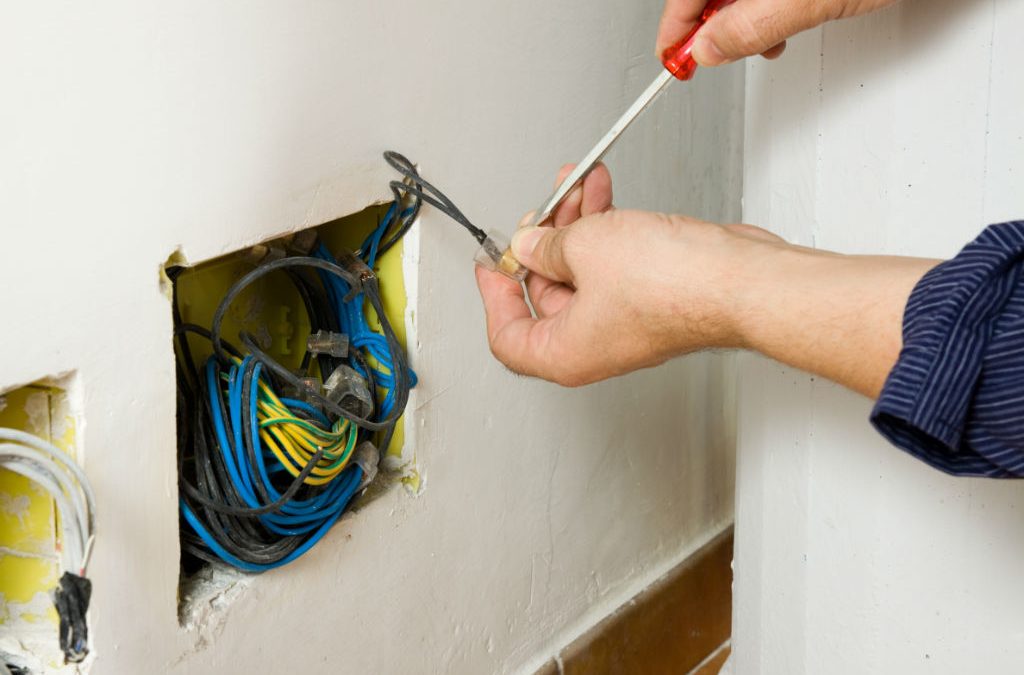Rewiring a house is an essential maintenance task that ensures your electrical system is safe, efficient, and capable of handling modern demands. Whether you’re living in an older home or simply updating your electrical system, understanding the cost, necessity, and signs that rewiring is needed can help you make informed decisions. In this comprehensive guide, we’ll cover everything you need to know about rewiring your home.
How do you know that your house needs complete rewiring in the first place? Have it inspected by a reputable licensed electrician! Assuming that your house does indeed need old electrical wiring replaced, the million-dollar question arises, how much is rewiring your house going to cost?
Cost of Rewiring Your House
The cost of rewiring a house can vary significantly depending on several factors, including the size of your home, the complexity of the job, and the materials used. On average, homeowners can expect to pay between $2,500 and $15,000 for a complete Brisbane or Sunshine Coast house rewiring job. Here are some of the key factors that can influence the cost:
- Size of the House: Larger homes naturally require more wiring, outlets, and switches, which increases the overall cost.
- Age and Condition of the House: Older homes may have outdated wiring systems that require more extensive work, such as removing old wiring or dealing with unsafe materials like asbestos.
- Type of Wiring: Modern wiring materials, such as copper, are more expensive but offer better safety and efficiency than older materials like aluminium.
- Accessibility: Homes with difficult access to walls, ceilings, and floors may require more labour, driving up costs.
- Electrical Upgrades: If you’re adding new outlets, switches, or upgrading your electrical switchboard to a higher amperage, these upgrades will add to the overall cost.
While rewiring can be a significant investment, it’s crucial to consider the long-term benefits. Updated wiring not only enhances safety but can also increase the value of your home.
Is It Necessary to Rewire Your Home? 8 Tell-Tale Signs
Rewiring isn’t always necessary, but there are several situations where it becomes essential. Understanding when rewiring is needed can help you avoid potential hazards and ensure your home’s electrical system is up to code.
-
- Old Wiring: Homes built before the 1980s often have wiring that doesn’t meet current safety standards. Back then homes weren’t equipped to house the vast number of electrical gadgets and items that we have now, therefore there’s a strong chance that you could be overloading your circuits, particularly if it features outdated systems such as knob and tube wiring or aluminium wiring.
- Frequent Electrical Issues: If you’re experiencing frequently tripped circuit breakers and safety switches, these are signs that your wiring may be overloaded or faulty. It could be that too many single appliances are plugged into a circuit causing it to overload. To test this simply unplug all items and then plug them back in individually. If the fuse finally trips, then that’s where your problem lies. Alternatively, it could also mean that there’s a fault in the circuit or a short in the wiring.
- Renovations: If you’re planning a major renovation or adding new appliances, rewiring might be necessary to accommodate the increased electrical load.
- Insurance Requirements: Some insurance companies may require homes with outdated wiring to be rewired before they will provide coverage.
- Limited Outlets: Older homes often have fewer outlets, leading to over-reliance on extension cords. This can overload circuits and increase the risk of fire. So adding extra power points can require rewiring.
- Flickering or dimming lights: Even with good wiring, flickering lights can occur occasionally, but when it happens on a regular basis then it may be a sign that your electrical wiring isn’t all it’s cracked up to be. It could mean that either your circuit or alternatively your whole electrical wiring, needs replacing.
- Shocking switches: If you feel a slight tingle or shock when you touch a switch it’s a good indicator that there’s a problem. Generally, it means that a wire in the circuit is shorting out to the conduit which is enclosing the existing wiring. It could also be that a wire has lost its insulation. For safety reasons, when confronted with electrical problems of this nature it pays to call in a professional for an electrical safety inspection.
- Safety Concerns: If you notice burning smells, sparks, or discoloured outlets, these are serious warning signs that your wiring is unsafe and needs to be replaced.
Conclusion
Rewiring your house might be an expense you don’t particularly want to incur. However, if your existing wiring poses a major fire risk, then ultimately it’s one of the best investments that you can make. Studies have found up to 40% of house fires are caused by electrical faults!
Rewiring your home is a critical task that ensures your electrical system is safe and up to date with modern standards. Whether you’re dealing with old wiring, planning renovations, or experiencing frequent electrical issues, knowing the signs and understanding the costs involved can help you make the right decision. Consult with a licensed electrician to assess your home’s wiring needs and to carry out any necessary work safely and efficiently. We can quickly dispatch a Sunshine Coast electrician or a Brisbane electrician to your home for a quote and assessment today.













